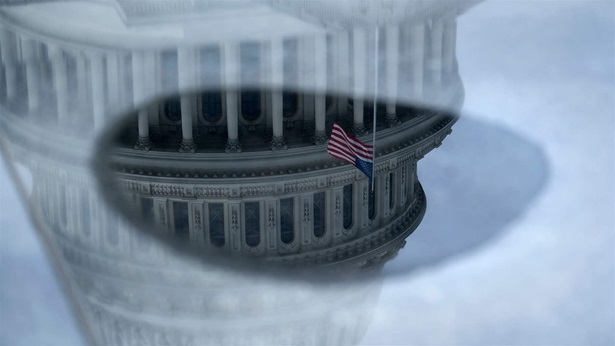Virginia System Helps Local Governments Prevent Fiscal Emergencies
States should put monitoring programs in place to identify financial problems early

In 2017, Virginia’s independent state auditor designated Bristol—a 17,000-person city in the far southwest corner of the state—as “fiscally distressed,” meaning that its ability to provide basic public services was at risk. In addition to facing cuts to essential services, localities with deep and persistent fiscal problems may require costly state assistance or even long and painful bankruptcy processes.
But Virginia’s fiscal early warning system, launched that year, detected Bristol’s problems early and helped to identify their sources. That allowed city leaders to put a plan in place to address them. In part as a result of those actions, the state no longer considers Bristol fiscally distressed, and Virginia may have been spared a local financial emergency.
Research by Pew has found that nearly half of the states routinely monitor the fiscal health of their cities, towns, or counties. These programs can help states assist localities before minor issues become more severe. Virginia’s success catching Bristol’s problems demonstrates why states should consider adopting early warning systems that can then be implemented and adapted to best suit their needs.
Creating the early warning system
Petersburg, a midsize city 25 miles south of Richmond that is one of Virginia’s poorest municipalities, experienced an unexpected fiscal crisis in 2016. A series of setbacks and missteps, including malfunctioning water meters that cost Petersburg revenue as well as an overreliance on borrowing, left the city with a massive budget shortfall and substantial debt.
Although Petersburg is now on firmer financial footing, the fiscal problems weren’t caught soon enough to avoid deep cuts. In 2016, the city council reduced pay for city workers by 10% and cut millions of dollars from the education budget.
Hoping to avoid being surprised by similar emergencies in the future, state lawmakers passed a measure in 2017 that directed the Virginia Auditor of Public Accounts (APA) to create an early warning system that could regularly identify fiscally distressed municipalities.
In setting out to build the new system, the auditor’s staff reviewed academic literature and conferred with outside experts. Those included staff from Louisiana’s Legislative Auditor’s office, who ran Petersburg’s historical financial numbers through their state’s established model for identifying distressed municipalities. The analysis found that if Virginia had had a similar early warning process in place, it could have seen Petersburg’s problems coming.
The first edition of Virginia’s early warning system consisted of two parts—first, a model to assess fiscal distress using audited financial data that localities already were required to send to APA, and second, a voluntary follow-up questionnaire and discussion to help the auditor’s staff confirm or discard the initial distress designations.
In 2017, the program’s first year, the APA flagged eight localities as being potentially distressed based on financial reporting, prompting staff to send them the questionnaire. Designed to determine whether a locality could benefit from state assistance or intervention, the questionnaire seeks detailed information on each locality’s fiscal history, practices, and challenges. Based on the completed questionnaire, the auditor’s office would confer with the locality and, if necessary, notify executive branch and legislative leaders of its need for help.
Aiding Bristol
In 2017, the APA judged only Bristol to need help from the state. From the questionnaire and follow-up discussions, auditor staff determined that the city faced two main financial problems: first, an inability to adequately fund its landfill and waste collection system under the current fee structure, and second, a high amount of debt associated with the establishment of a commercial development project for shopping, dining, and entertainment.
In both instances, anticipated revenues failed to match liabilities, threatening Bristol’s fiscal stability. In response, the APA recommended that state leaders consider assisting Bristol. In 2018, Governor Ralph Northam(D) agreed, approving up to $100,000 in state funding for the city to hire two professional consultants. One would assess the operations of the landfill and waste collection system while the other would conduct a financial evaluation of the development project.
Following those recommendations, Bristol made changes that included increasing fees for solid waste collection and restructuring the city’s debts. Partly as a consequence of these changes, the city’s bond rating has improved three times since 2017, and the APA no longer considers Bristol to be in financial distress.
Beginning in 2018, the APA refined the early warning process by adjusting how it analyzes data from the audited financial reports and by incorporating demographic factors such as median household income, population change, and poverty and unemployment rates. The auditor’s office made these changes in response to feedback from local officials, insights from other state agencies, and lessons learned from its professional staff.
In the years since Bristol’s designation, the APA hasn’t judged any additional localities to be fiscally distressed, but many communities face difficult financial circumstances today because of a new recession linked to the COVID-19 pandemic. With the establishment of the local monitoring system, Virginia is now better equipped than in the past to help local governments avoid costly, disruptive fiscal emergencies.
Jeff Chapman is a director and Logan Timmerhoff is a senior associate with The Pew Charitable Trusts’ state fiscal health project.











